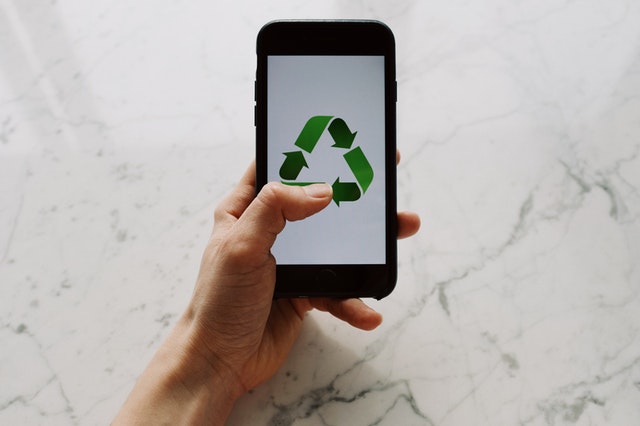Obsolescence is the determining factor of what makes impactful consumer electronics, and the same is true for its accessories. When purchasing a new smartphone, tablet or laptop, there might not be many environmentally-friendly options to choose from, however, when it comes to the accessories we pair our technology with, companies are implementing a greater eco-consciousness in their design and manufacturing to give us environmentally-friendly options. We chose the top 5 electronic accessories that will not compromise quality for sustainability and have you feeling like a better human for buying them.

1.Eco-friendly Phone Cases
Other accessories pale in comparison to eco-friendly phone cases as the total number of mobile phones outweigh the population of people on earth. Can you imagine how many tonnes of plastic phone cases are generated and unsustainably disposed of? Eco-friendly phone cases are genius as most of the population can utilize them. They are made from recycled, plastic-free materials (and even sometimes pressed coffee or wood) which make them biodegradable.
2.Green Smartwatch/ Wooden Watch
The majority of smartwatches materials are plastic, a proven toxic risk to people as well as our planet, and the common wrist-watch is no better. The greener wooden watch has been around for a while, and we are glad to report that no trees are being cut down, as recycled timber is being used to make these watches.
Wellness tracker jewellery start-ups such as Urban Leaf are looking at eco-plastic alternatives when experimenting with different composites, in the hopes of limiting the “ingredients” to a minimalistic combination of stainless steel and plastic alternative.
3. Environmentally friendly VR Headsets
Whoever thought we would be able to manufacture Virtual Reality Headsets mostly out of sustainably sourced materials, or even the cardboard box your television came in? If you look at the initiatives being taken by trailblazers Google Cardboard, and Maxbox VR, they are teaming up to bring about headsets which are not only cheaper when the price is being considered, but also eco-conscious to the bone (the very bleach used on the paper is required to be completely or elementary chlorine-free).
The Cardboard App was developed solely for the revolution if you have a smartphone, you can experience Virtual Reality by using it as the “lenses” of the headset.
4. Sustainable Bluetooth Speakers
Solar-powered Bluetooth speakers are taking the markets by storm as they are proving to pack a punch with up to almost 50 hours of energy-sufficient battery life and smartphone charging capabilities. Companies are not afraid to do some homework on sustainably sourced materials either and have released speakers that are made of bamboo, plastic-alternatives and recycled timber.
These portable eco-friendly hybrid speakers are durable and affordable, which makes them ideal for camping and other outdoorsy events as they can play up to 1500 songs after a single solar charge.
5. Earth-friendly Earbuds
Air pods generated $2.2 billion in the first year of their initial sales in the year 2016. This makes one wonder; how many AirPods are and will be ingested by marine life or wash up on shores like tiny little beached whales? Was Apple socially and environmentally responsible when designing and producing this popular gadget? We think that the answer is no as silicon and plastic make up their requirements.
The time has come to unveil the sustainably crafted eco-friendly wireless earbuds such as House of Marley’s Liberate Air. Start-ups such as these strive to emphasize the ecosphere through their vision and mission and deliver products that are sourced from hemp, fabrics, FSC™ certified wood, bamboo, and recyclable aluminium.
Something to Consider
As we compiled a list of favorites, we have concluded that there is a more mindful approach to consumption in the electronics department. If so, many companies are taking such sentimental measures to think ahead instead of being money-hungry and designing their products to utilize one of the cheapest materials available (plastic), surely, we can do our bit and support their cause.
So many start-ups are using their proceeds from their product sales in efforts to support global reforestation by planting a tree with every purchase or even donating to green charitable causes.
Research has proven that 40 million tonnes of electronic waste are produced every year worldwide, which is why I would like to take a moment to hardwire the principle of repairing and reselling our electronic devices. If it cannot be resold, can it be gifted to someone in need? And if it cannot be repaired, can it be recycled? Prevention is better than cure is an age-old saying for a reason.



